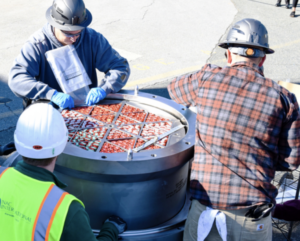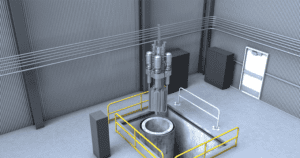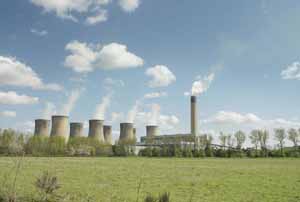RWE npower has urged the UK government to address pitfalls in carbon capture and storage (CCS) regulation and policy that could prompt delays to vital investments. The company, which revealed it was close to completing a UK CCS facility, was responding to the government’s CCS consultation that closed last week.
RWE npower, which supplies about 10% of the electricity used by England and Wales, said its new test facility at Didcot Power Station in South Oxfordshire would be completed this month. It will enable npower to evaluate post-combustion as well as precombustion carbon capture via oxyfuel firing.
RWE also said it would press ahead with plans to start work next year at the country’s first pilot plant—at Aberthaw in South Wales—that would capture flue gas directly from a commercially operating power station.
Responding to the government’s consultation, “Towards Carbon Capture and Storage,” npower called on the government to address significant challenges such as carbon dioxide transportation and storage, which are not addressed.
The consultation in large part asks for views on a proposed EU directive (published by the European Commission on Jan. 23, 2008) on the geological storage of carbon dioxide that aims to facilitate the deployment of CCS.
The UK is “leading the world in the development of CCS technology and its eventual deployment,” the government said in the consultation’s introduction. “We are one of only three countries committed to demonstrating CCS on a commercial-scale power station. We have put proposals to Parliament in the Energy Bill presented to this session that will enable the safe, secure storage of carbon dioxide underground in the UK offshore area,” it says.
While the consultation proposals focus on the carbon capture-readiness of power stations, the government should also be providing the strategic and regulatory framework to underpin a carbon dioxide transportation and storage network. It should also prioritize an efficient regulatory system for storage sites, said RWE npower’s CEO Andrew Duff.
“This process mustn’t create further delays to electricity investment. The country needs to develop at least 25 GW of new generation facilities by 2020 and draw on a range of sources like renewables, gas and combined heat and power. Coal will play a reducing, but vital, part to keep supplies secure, reliable and affordable,” he said.
Last year, npower announced investments totaling £1.7 billon ($3.07 billion) to halve its carbon intensity by 2015 (compared to 1990 levels). The company is constructing a 1,650-MW gas-powered station at Staythorpe in Nottinghamshire and is awaiting consent to build another 2,000-MW gas station in Pembroke, West Wales.
Over in Germany, npower’s parent company RWE announced in August it would build a 450-MW integrated gasification combined-cycle demonstration project at Heurth near Cologne. This plant will use lignite, Germany’s most common indigenous coal source.
Sources: RWE, BERR
RWE prepares to test CCS technologies at UK power plants
SHARE:








